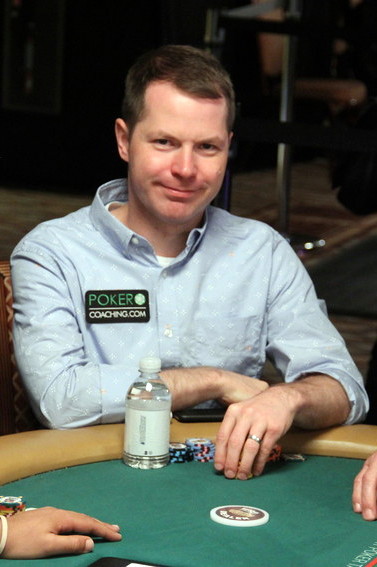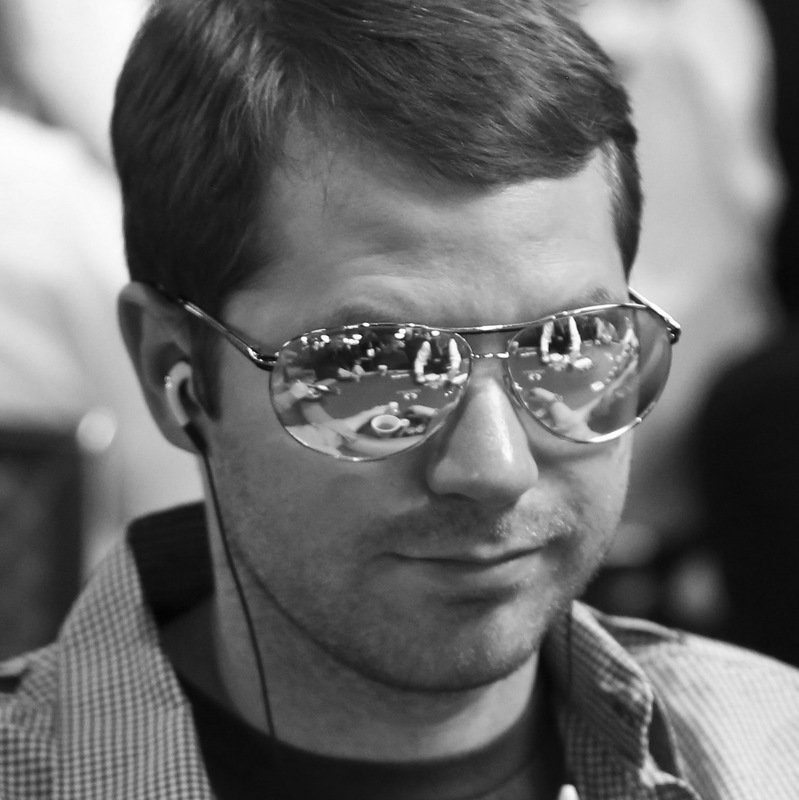






Transitioning From Live To Online Pokerby Jonathan Little | Published: Jan 27, 2021 |
|
|
Card Player Magazine, available in print and online, covers poker strategy, poker news, online and casino poker, and poker legislation. Sign up today for a digital subscription to access more than 800 magazine issues and get 26 new issues per year!
 COVID-19 has wreaked havoc on the physical and mental health of many people, the economy, and also the live poker arena. Most poker rooms have closed or reduced capacity substantially, forcing poker players to play online instead. This has resulted in a bit of an online poker resurgence, and many new players. If you are new to online poker, you will find that the game is quite similar to live poker, but there are a few major differences. Let’s take a look at a few of them.
COVID-19 has wreaked havoc on the physical and mental health of many people, the economy, and also the live poker arena. Most poker rooms have closed or reduced capacity substantially, forcing poker players to play online instead. This has resulted in a bit of an online poker resurgence, and many new players. If you are new to online poker, you will find that the game is quite similar to live poker, but there are a few major differences. Let’s take a look at a few of them.
You Cannot See Your Opponents
When you play poker in a casino or home game, you can physically see your opponents. This allows astute readers of people to be able to adjust their strategy to take advantage of the mistakes their opponents are making.
As an example, if you know your opponent tends to slouch down in their seat when they have a weak hand, but they perk up when they have a strong hand, you can essentially play perfectly. When they are sitting up, you can fold your non-premium hands, and when they are slouching, you can bluff them out of the pot with your non-premium hands and slow play your premium hands.
When playing online, you will obviously not have the benefit of seeing your opponent. Many strong live players fail online because their best skill (reading their opponents’ physical mannerisms) has been taken away.
Instead of relying on physical tells, you must learn to play a fundamentally sound strategy and only adjust once you have witnessed your opponents make mistakes that you can capitalize on. I just released a course called Mastering the Fundamentals, which you can find at PokerCoaching.com/CardPlayer. Check it out to confirm you are playing fundamentally sound poker.
Your Win Rate Will Be Lower
In the live poker arena, your potential win rate can be quite high, perhaps as high as 30 big blinds per 100 hands in games filled with mostly recreational players. If you play $1-$2 no-limit, this works out to about a $20 per hour win rate. Online though, the players are generally much stronger at the same buy-in level. This results in win rates being much lower. At $1-$2 online, the best players in the world win at about $10 per 100 hands, which is about 40% as much as live players.
This may not sound too bad, because you will play more hands per hour, but consider what it does to those who are not the best players in the world. If they win at $10 per hour live, they may win only $2 per hour online, or might even lose.
As your win rate decreases, you must keep a larger bankroll in order to ensure you do not go broke due to the standard variance of the game. Check out JonathanLittlePoker.com/bankroll for my Bankroll Bible. Strong live players may need to keep only 25 buy-ins in their bankroll, whereas online players often need 100 buy-ins or more. Make sure you understand the variance of the game that you are signing up to play.
You Can Play More Than One Table At A Time
When playing live, you only have one table to focus on at a time. If you play one table online, you will find that most of your time is spent waiting for your next hand. Since you have a lot of downtime, you might as well play more tables.
When I sit down for a long online tournament session, I load up about 16 tournaments at a time ranging from $100 to $2,500 buy-ins. This allows me to invest a lot of money in a short period of time, although my win rate on each individual table may be relatively low due to my focus being strained. You will usually find that winning a little bit on a lot of tables results in you winning more money in the long run than winning a decent amount more on only a few tables.
While I do not suggest you learn to play 16 games at the same time, I do suggest you learn to play at least four. The easiest way to do this is to spend a few hours playing about twice as many tables as you normally play for a few hours in tiny stakes games. This will get you used to playing more tables such that your normal amount becomes easy. Continue playing tiny stakes while adding more tables. Once you get to where you can play eight or so at a time, playing four will be a breeze.
When you are playing lots of tables at a time, get comfortable with making decisions quickly and moving onto the next hand. Do not think you have to wait and see what happens whenever you make a substantial bet. Move onto the next decision. You will soon know whether or not your substantial bet on the other table won or lost.
You May Be Playing On An Unlicensed Or Unregulated Site
While essentially all casinos in the United States are licensed and regulated by some sort of gaming commission, that is not necessarily true for all online poker sites. In America, many sites operate illegally and are not vetted by any legitimate gaming commission. Legal sites are available in some states, while others are forced to play on sites that operate in a grey area.
I strongly suggest that you only play on the licensed/regulated sites. If none of them are available where you live and you decide to play on an unlicensed/unregulated site, only keep enough money in them to play for one day. At any point in time, the shady sites may close up and not give your money back. While the sites currently operating in this grey area have mostly cashed out players and generally been secure so far, that does not mean they will continue being safe in the future. If you are going to open yourself up to loss, be sure it is minimal.
Over the last year, some extremely shady mobile apps have come onto the market. I strongly suggest you do not play on these apps for many reasons. First, you have to deposit through a middleman, who reports to someone you do not know. Some people have played, won, and not been paid by their middleman with no potential for recourse at all.
If something seems fishy, it probably is. Be smart and protect yourself. Just because a game exists does not mean that you have to play. ♠
 Jonathan Little is a professional poker player with over $7 million in live tournament earnings, best-selling author of 15 educational poker books, and 2019 GPI Poker Personality of the Year. If you want to increase your poker skills and learn to crush the games, check out his training site PokerCoaching.com. Click here to try PokerCoaching.com for free.
Jonathan Little is a professional poker player with over $7 million in live tournament earnings, best-selling author of 15 educational poker books, and 2019 GPI Poker Personality of the Year. If you want to increase your poker skills and learn to crush the games, check out his training site PokerCoaching.com. Click here to try PokerCoaching.com for free.
Features
The Inside Straight
Strategies & Analysis
Tournament Circuit